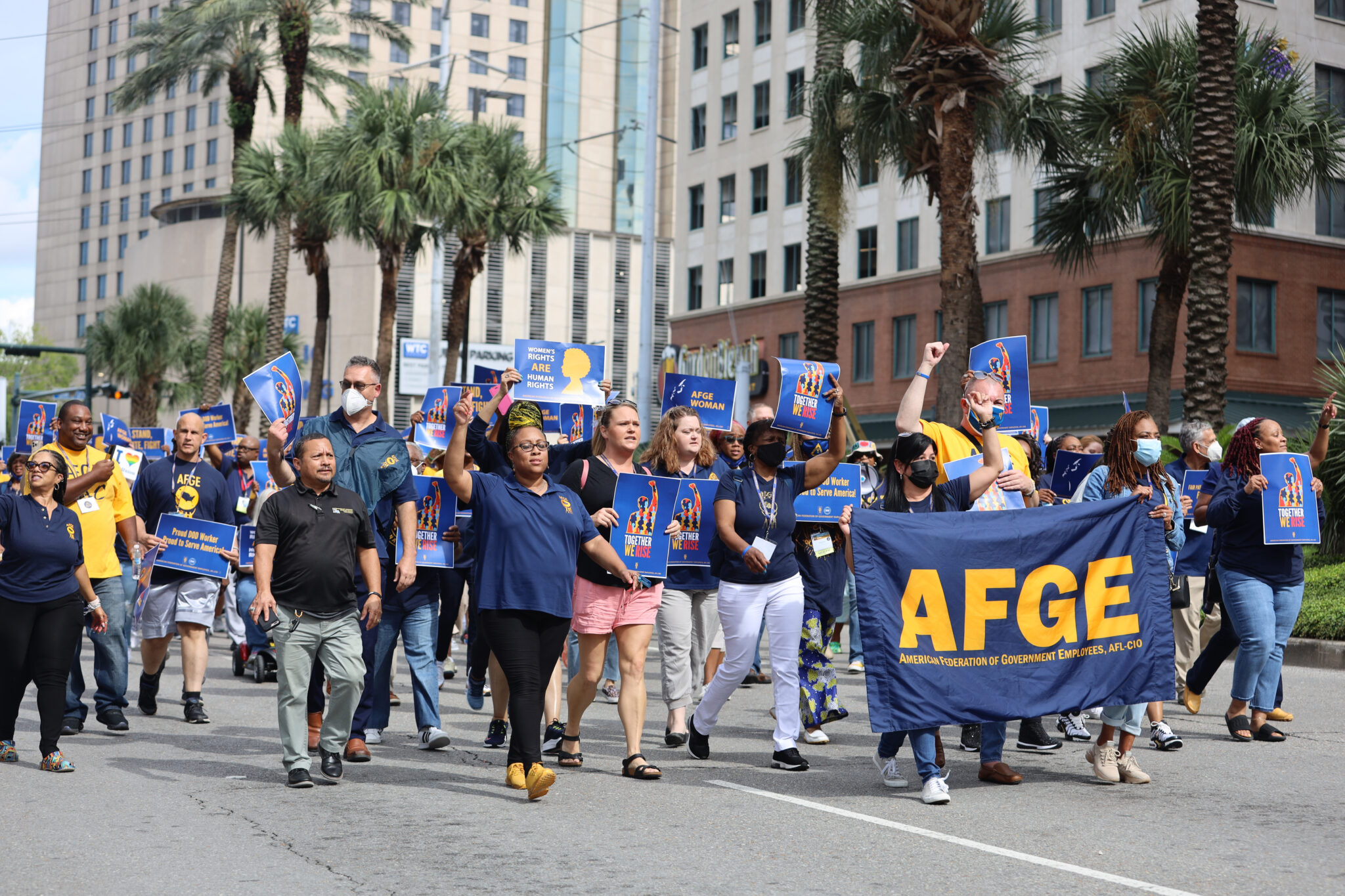
Mila Rostain is a student at Harvard Law School.
In today’s News and Commentary, the NLRB seeks an injunction of California’s law giving the state jurisdiction over private sector workers when the NLRB lacks a quorum, a US District Judge grants a temporary restraining order stopping shutdown-related RIFs, and Governor Newsom vetoes an ILWU supported bill.
Yesterday, the NLRB filed a complaint seeking to enjoin California’s AB 288, the state’s new law granting its Public Employment Relations Board jurisdiction over private sector workers when the NLRB implicitly cedes jurisdiction, including when it lacks a quorum. The law would go into effect in January. The NLRB claims that AB 288 is Garmon preempted. The suit comes after the NLRB and Amazon sued New York over a similar law last month. Like in New York, the NLRB’s case is likely to raise questions about the NLRB’s standing to sue in such cases.
Also Wednesday, US District Judge Susan Illston granted a temporary restraining order enjoining shutdown-related reductions in force. So far, more than 4,000 federal workers have lost their jobs as a result of shutdown-related RIFs. According to Judge Illston, President Trump is firing “line-level employees during a government shutdown as a way to punish the opposing political party.” Judge Illston found that plaintiff unions were likely to prevail on the merits of their claim that the RIFs are unlawful agency actions under the APA, or in her words, “targeting for RIFs those programs that are perceived as favored by a particular political party—is the epitome of hasty, arbitrary, and capricious decisionmaking,” and likely rests on illegal grounds. Judge Illston also noted that “the irreparable harm in this case is distinct from prior RIFs because the record reflects that the shutdown is preventing some furloughed employees from even knowing that they are being RIF’d.” A hearing for the case is scheduled for October 28.
Earlier this week, Governor Newsom vetoed a law that would have blocked funding to support port automation while limiting the regulatory powers of air quality agencies. While environmental groups praised Governor Newsom for vetoing the law, the International Longshore and Warehouse Union, long opposed to the automation of ports, had supported the law. The International Longshoremen’s Association stated, “when a state uses taxpayer money to subsidize automation that replaces human labor, it’s not innovation, it’s corporate welfare. And when an elected official enables that process, it’s not leadership, it’s capitulation.” Governor Newsom said in his veto statement, “it is imperative that we maintain the tools we have and encourage cooperative action at all levels to avoid the worst health and climate impacts.”






Daily News & Commentary
Start your day with our roundup of the latest labor developments. See all
February 20
An analysis of the Board's decisions since regaining a quorum; 5th Circuit dissent criticizes Wright Line, Thryv.
February 19
Union membership increases slightly; Washington farmworker bill fails to make it out of committee; and unions in Argentina are on strike protesting President Milei’s labor reform bill.
February 18
A ruling against forced labor in CO prisons; business coalition lacks standing to challenge captive audience ban; labor unions to participate in rent strike in MN
February 17
San Francisco teachers’ strike ends; EEOC releases new guidance on telework; NFL must litigate discrimination and retaliation claims.
February 16
BLS releases jobs data; ILO hosts conference on child labor.
February 15
The Office of Personnel Management directs federal agencies to terminate their collective bargaining agreements, and Indian farmworkers engage in a one-day strike to protest a trade deal with the United States.